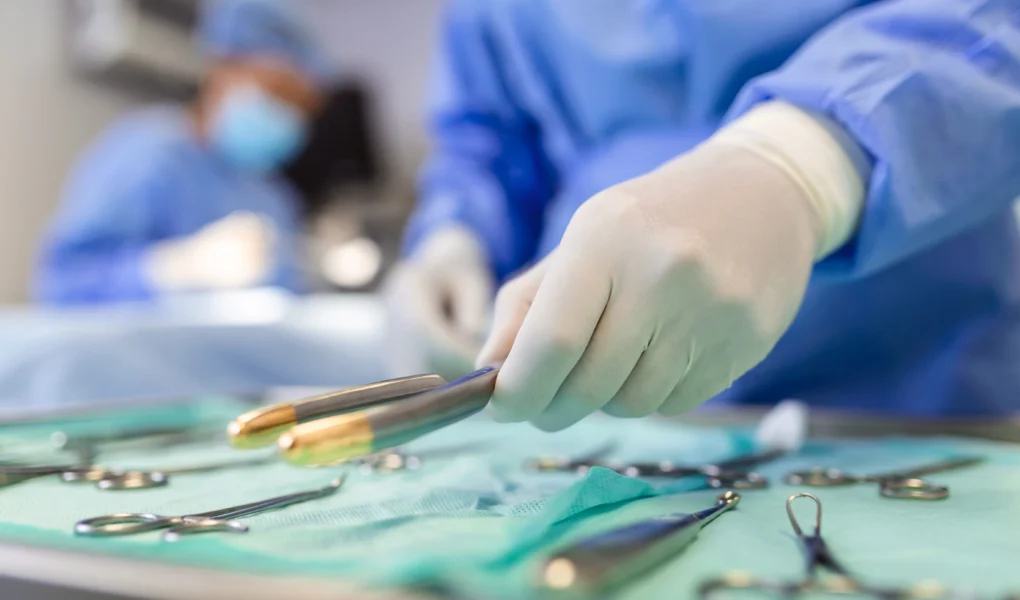Laparoscopic surgery has gained popularity and acceptance among surgeons and patients over the past few years, primarily because it is a minimally invasive surgical procedure with less pain and recovery is much faster than open surgery. It is an excellent method for Gastrointestinal, Gynaecological and Urological surgery
What is Laparoscopic Surgery?
Laparoscopic surgery is a specialised, keyhole technique for performing surgery using small incisions (as opposed to bigger incision in open surgery) with less pain and minimal scarring. The surgery gets its name from the laparoscope, a slender device which has a camera and light at its end, that is used to diagnose a condition or to perform a minimally invasive surgery for issues including appendicitis, cholecystitis, gallstones, hernias, Gastrointestinal cancers, bowel pathologies, bariatric surgery or weight loss surgery, gynaecological conditions like fibroids, ovarian cysts, tubal pathology, fertility evaluation, fertility sparing surgery and several urological procedures including radical prostatectomy, pyeloplasty, nephrectomy, varicocelectomy
Advantages of Laparoscopic Surgery
- Laparoscopic surgical procedures are with many benefits over traditional open surgery, making them the more popular choice among surgeons and patients alike.
- Smaller incisions on Abdominal wall. Hence less trauma
- Shortened recovery time and enhanced recovery Hence earlier return to work and routines. Lesser chance of postoperative infection and complications
- Cosmetically better
Advanced Laparoscopic Surgery
Advanced laparoscopic surgery refers to more complex surgical procedures that involve higher levels of skill and precision, intricate technique and highly specialised tools.
Laparoscopic Surgery for Obesity
Fast changing lifestyles in the past few years have seen an increasing incidence of obesity across age groups throughout the world. More than an aesthetic impact, obesity can be a precursor to many other life-threatening medical conditions. When obesity cannot be controlled through diet or exercise, or the patient has major health complications due to the weight gain that needs immediate attention (like diabetes, sleep apnea or fatty liver disease), laparoscopic surgery for obesity is a very viable option for treatment. This specific surgery is also referred to as bariatric surgery or weight loss surgery and works by modifying the digestive system to regulate the number of calories that get consumed by the body and also regulating and making changes in the required hormones.
- The types of bariatric surgery being done here are mainly types:
- 1) Sleeve gastrectomy – Also known as gastric sleeve, it is a simple procedure that removes a large portion of the stomach, leaving a tubular, sleeve-like stomach portion behind.
- The purpose of the procedure is to reduce the number of calories that can be consumed during a meal and to reduce the hunger-inducing hormones produced in the stomach.
- 2) Gastric bypass – Known as Roux-en-Y, the procedure involves creating a small pouch at the top of the stomach and separating it from the lower part of the stomach with staples. The pouch is then connected directly to the small intestine bypassing the lower portion of the stomach. The gastric bypass ensures that less food can be consumed by the body and the small intestine have less nutrition to absorb.
- 3)MiniGastric Bypass- This procedure also a type of Bypass surgery that causes good weight loss and improvement in co morbidities
- The doctors team lead by the Bariatric surgeon evaluates the patient and take decisions on
- *Requirement of Bariatric surgery or patient should be managed with onions other than surgery.
- *If surgery required what type of Laparoscopic surgery to be selected.
- The final decisions are taken after discussion with Patient and Family.
Is Laparoscopic Surgery Right for You?
While minimally invasive surgical procedures are preferred by patients because of the many benefits it offers, it may not be suitable for all patients. The surgeon will take a decision along with the anaesthetist whether a patient is fit for laparoscopic surgery after a detailed surgical and anaesthetic evaluation after considering the following factors:
- Complexity of the disease, Medical/Surgical Co-morbidities
- Cardiovascular and overall health of the patient
- Patient’s preferences and willingness for the surgery
Laparoscopic Surgery at GEM Hospital, Thrissur
GEM Hospital is recognized as one of the best hospitals for laparoscopic surgery in India. The hospital offers the advantages of having experienced doctors, high-definition laparoscopy and advanced technology, and state-of-the-art facilities to its patients, along with dedicated commitment to patient care. This ensures that the patients have the most conducive environment for successful general and advanced laparoscopic surgery procedures.
✉️ gemthrissur@geminstitute.in



